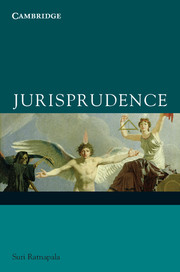6 - Separation of Law and Morality
from PART 2 - LAW AND MORALITY
Summary
Jurisprudence was enlivened in the second half of the 20th century by new debates about law and morality. Two of these involved Herbert Hart, the major figure in British legal positivism. Hart argued that the connection between law and morality was not necessary but contingent. He acknowledged that law often gives effect to morality, as when it prohibits crimes and torts and demands the performance of contracts. However, he maintained that a law, however immoral, will be law if it is recognised as law according to the established rules of recognition. The sensible response to such acts, Hart argued, is not to deny that they are law but to correct their effects by other laws passed where necessary with retrospective effect. (See discussion of Hart's views in Chapter 2.)
Two American professors of law questioned this general theory, and argued that law cannot be separated from morality in the sense proposed by Hart and his positivist predecessors. The first was Lon Fuller, whose theory was inspired by the German legal philosopher Gustav Radbruch. The second was Ronald Dworkin, who was a student of Fuller at the Harvard Law School. Their arguments are related in some ways to the classical ideas of natural law discussed in the previous chapter, but they also introduced new dimensions to the debate about the relation of law and morality. Fuller and Dworkin approached the question from different directions, but I conclude that their theories are fundamentally similar.
- Type
- Chapter
- Information
- Jurisprudence , pp. 161 - 182Publisher: Cambridge University PressPrint publication year: 2009



